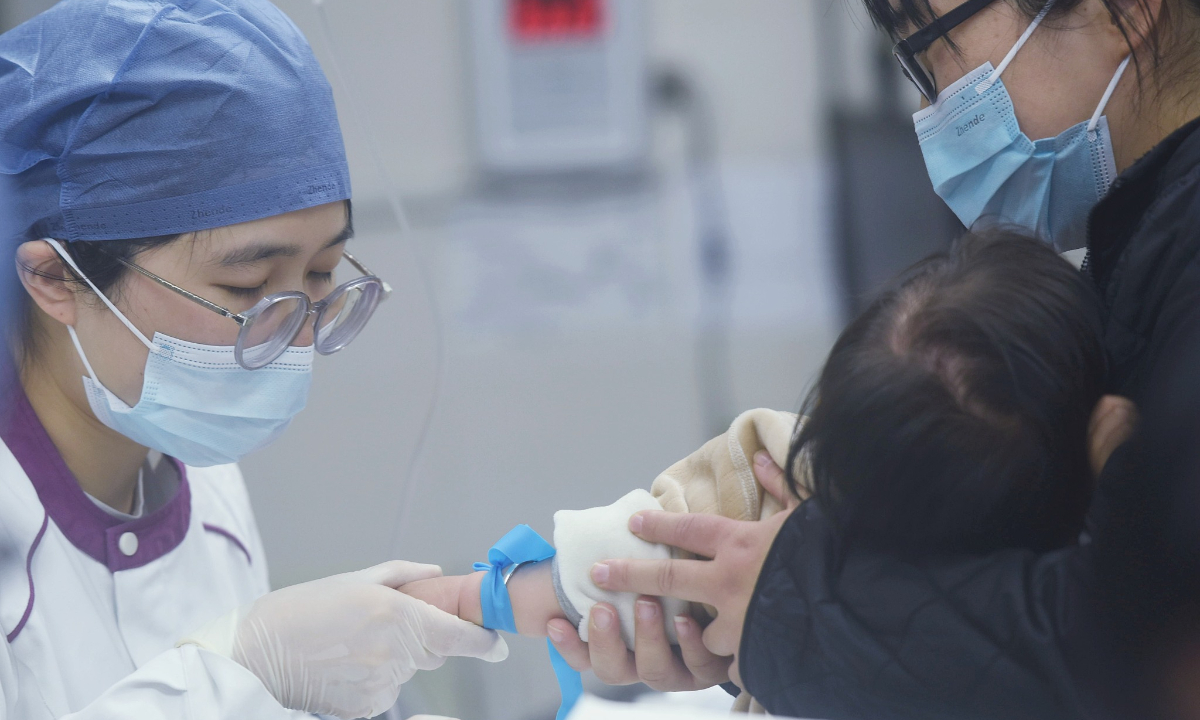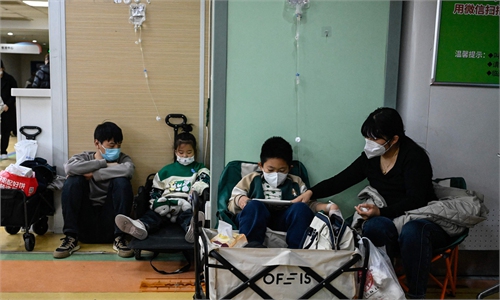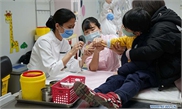No new infectious diseases or pathogens detected in China’s prevalent acute respiratory diseases: NHC

Photo:VCG
The acute respiratory diseases that are currently prevalent in China are all caused by known pathogens, with no new infectious diseases caused by new virus or bacteria have been detected, according to the National Health Commission (NHC) during a press conference held on Saturday.
At the same time, China has been in close communication with the World Health Organization regarding the prevalence of respiratory diseases. Officials stated that there are mature treatment methods available for the currently prevalent diseases.
In addition, the health authorities have actively responded to the high incidence of respiratory diseases in children and the significant increase in visits to medical institutions. They have coordinated necessary measures and required all types of medical institutions at all levels to fully open pediatric outpatient services.
The medical institutions are also required to increase the number of midday, evening, and weekend outpatient services, extend service hours, expand hospital bed capacity, and continuously optimize registration, examination, payment, and other medical processes to facilitate people's seeking medical treatment.
Furthermore, the National Influenza Center under the Chinese Centre for Disease Control and Prevention (China CDC) has been continuously conducting monitoring of the sensitivity of influenza viruses to antiviral drugs. The monitoring results show that the current antiviral drugs are effective against influenza viruses.
Wang Dayan, the director of the National Influenza Centre, said that the China CDC has been conducting surveillance of mutations, including the sensitivity of viruses to antiviral drugs and whether the viruses have developed drug resistance.
The National Influenza Centre, along with multiple laboratories worldwide, has been monitoring the sensitivity of influenza viruses to antiviral drugs. "The monitoring results show that influenza viruses are sensitive to several antiviral drugs currently available, which means that the drugs are effective against influenza viruses," Wang said.
Another aspect of surveillance is the compatibility between circulating viruses and vaccines, specifically whether the viruses have undergone antigenic changes. Wang stated that the components of the influenza vaccine administered this winter are consistent with those of the previous winter.
Currently prevalent subtypes of influenza viruses have not undergone any changes and are consistent with the main branches circulating in most regions globally, she said.
Regarding the public response to the current situation, the NHC emphasized the need to strengthen the ventilation and disinfection of public venues. In addition to opening windows and ventilating regularly, indoor venues should also increase the frequency of cleaning and disinfecting public supplies and facilities that are frequently touched to ensure that the environment in public areas is clean and hygienic.
In addition, the NHC suggested reducing large gatherings in public places. The public cultural venues, museums, and indoor tourist attractions could require reservation and dynamically divert passenger flow in a timely manner to avoid high levels of people gathering.
Officials from the China CDC also emphasized the need to ensure the supply of influenza and other vaccines and vaccination services remain sufficient. They urged key populations such as the elderly and children to receive vaccines as early as possible to reduce the risk of illness.
On Friday, the Chinese health authorities and the WHO held another teleconference regarding ongoing respiratory diseases. During the conference, Chinese experts provided an update on the national monitoring and clinical diagnosis since the previous teleconference on November 23, led by China's NHC.
In-depth technical exchanges took place between both parties, focusing on multiple pathogen monitoring and mycoplasma pneumoniae infection. Both sides expressed their intention to continue communication on these matters.
Global Times


